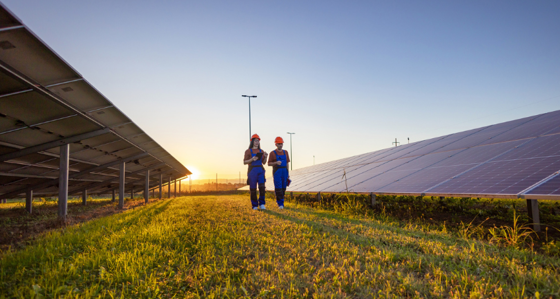
Project CASCDE - Department of Energy - Grid Modernization Initiative
25 September 2023
With the increasing intensity and occurrence of extreme weather events, the US electricity grid faces increasingly complex and interdependent challenges. Baringa is pleased to share that we are the sole management consultancy selected by the U.S. Department of Energy (DOE) to participate in its Grid Modernization Initiative (GMI) to support the development and deployment of concepts, tools, and technologies needed to measure, analyze, predict, protect, and control the grid of the future while incorporating equity and the best available climate science.
Project CASCDE is a consortium of Argonne National Laboratory, National Renewable Laboratory, Lawerence Berkely Labs, Rutgers, Ameren, the University of Wisconsin Madison, Jupiter Intelligence, and Baringa and we are thrilled to be amongst such excellent collaborators. CASCDE is one of 9 projects to receive DOE funding to assess wide-area extreme weather impacts to the power system. This strategic project combines the expertise of three of the nation's leading national labs, two universities, two critical energy asset owners, a market-leading climate forecast provider, and Baringa's power market modelling.
Recent events such as winter storm Uri or the heatwave in the Pacific Northwest which resulted in millions of customer outages and billions of dollars of economic impact illustrate the critical need for grid planners to incorporate these wide-area extreme events into grid planning. The challenge is that climate scientists today are challenged with forecasting these types of events with sufficient accuracy. Our project CASCDE team assembles some of the world’s leading scientists, statisticians, and market modelers to solve this exact issue.
The recent FERC Order 896 explicitly acknowledges this planning gap by directing “the North American Electric Reliability Corporation (NERC) to develop a new or modified reliability standard to require transmission system planning for extreme heat and cold weather conditions over wide geographical areas, including studying the impact of concurrent failures of generation and transmission”.
By understanding the impact of these wide-area extremes and forecasting their likelihood, grid planners can substantiate the costs of mitigation (e.g., new transmission, generation, or storage). We believe solving this challenge is critical to keeping the lights on for our nation and may fundamentally change how grid planning is done today.
"Traditional grid planning is focused on the expected, but as climate extremes become more commonplace, and sources of electric power transition away from fossil-fueled to weather-dependent generating resources, grid planners must incorporate the unexpected extremes into our planning. Working on this project, Ameren expects to benefit our customers and stakeholders through more reliable methods for identifying and planning for extreme, yet plausible climate events."
Joseph E. Millard, Ameren Services Company
"This project aims to address the issue of characterizing and forecasting wide area extremes and their impact on the nations’ electrical infrastructure, which presents significant conceptual and computational challenges. Using some of the latest advances in applied mathematics and numerical algorithms, and benefiting from a multifaceted, integrated team that has both technical depth as well as significant experience with pressing industry problems, we aim to achieve the best balance between performance and impact in this area."
Mihai Anitescu, Argonne National Laboratory
Related Insights

Not net zero: Reframing the case for energy efficiency
The retrofit conversation needs to shift beyond net zero. It's a significant economic opportunity for GB PLC.
Read more
Dissecting the REMA decision
Three years in the making, the Review of Electricity Market Arrangements (REMA) decision has now been published: the UK Government has decided to retain the national wholesale price.
Read more
What might a reformed GB national power market look like under REMA?
Discover how a reformed national market is likely to include significant changes to current market arrangements, with material impacts for market participants.
Read more
Investing in uncertainty: European power market outlook 2025
Our latest outlook points to a more uncertain energy transition, shaped by political and economic volatility across Europe in the form of Trade Wars, Populism and Remilitarisation.
Read moreIs digital and AI delivering what your business needs?
Digital and AI can solve your toughest challenges and elevate your business performance. But success isn’t always straightforward. Where can you unlock opportunity? And what does it take to set the foundation for lasting success?